Book an Ultrasound Scan
To book an Ultrasound Scan Call us Now at 1800 120 51600
Learn MoreFetal medicine, also known as maternal-fetal medicine (MFM) is a subspecialty of obstetrics that focuses on the health of the mother and fetus before, during, and after pregnancy. Fetal medicine has advanced in many ways to monitor and manage maternal and fetal health, including through technological innovations and medical breakthroughs.
Fetal Medicine Specialists are obstetricians and gynaecologists with additional training in managing high-risk pregnancies. They work with pregnant women and their primary obstetricians to address complications and optimize the health of both the mother and the fetus. Petals Imaging offers one of the best Fetal medicine Services in Kolkata. Learn why?
Role of Fetal Medicine in Obstetrics
Here’s a list of typical scans performed during pregnancy, arranged chronologically by weeks:
Important screenings done in conjunction with maternal-fetal medicine include:
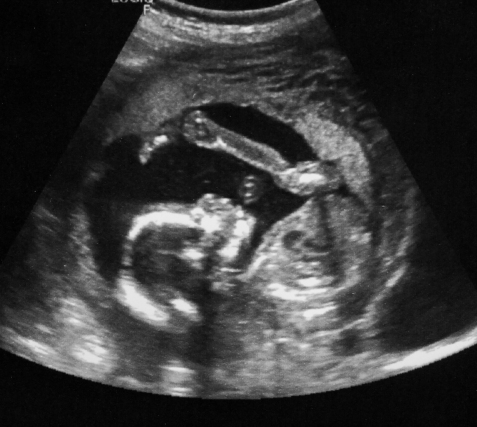
Used to assess the overall health and development of the fetus, including growth, position, and amniotic fluid levels.
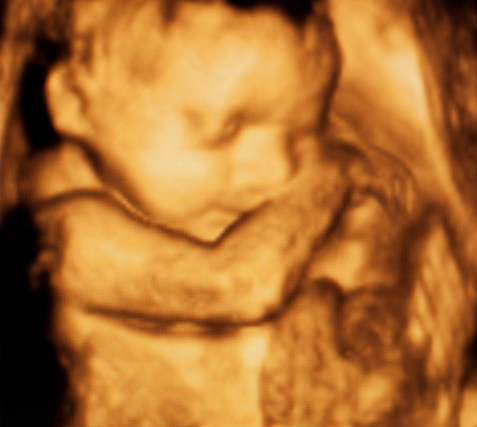
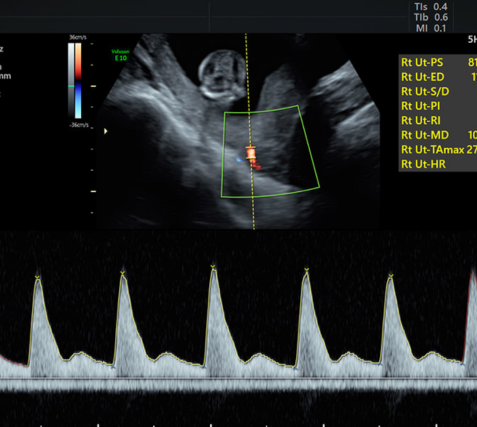
Tests that evaluate the risk of genetic disorders in the fetus without needing invasive procedures via blood tests and an ultrasound scan at specified weeks of Gestation.
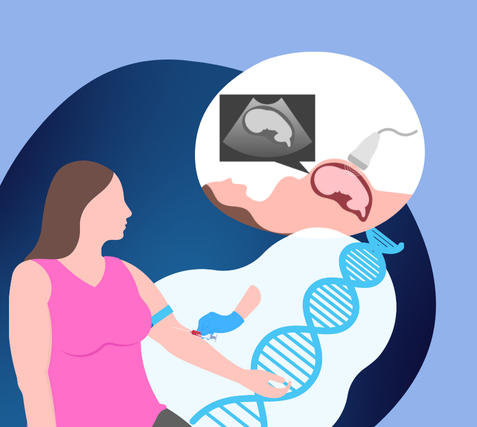
Fetal Diagnostic procedures, including Chorionic Villi Sampling, Amniocentesis and Fetal Intervetions like Fetal reduction. Only Certified Genetic Clinics – Ultrasound Clinics with Genetic Diagnosis licences from the government are allowed to do these procedures. These procedures are done by skilled and experienced Fetal Medicine specialists only, as these procedures are slightly invasive and have a slight risk. They are only done as a confirmatory test when primary screening tests show a strong indication of risks to the fetus and pregnancy outcome. Sometimes, Fetal Intervention can be carried out to correct the risks.
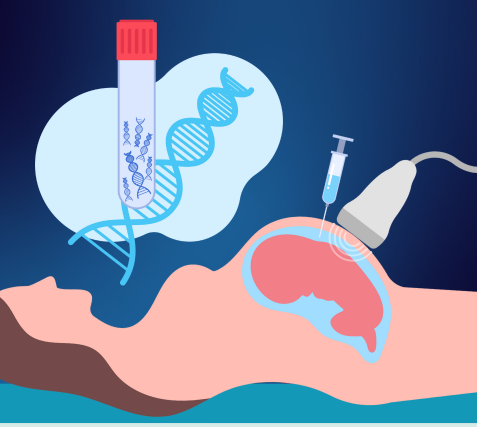
Aesthetic procedures aim to enhance one’s physical appearance, boost self-confidence, and promote a sense of well-being.
Maternal Fetal Medicine (MFM) is a specialized branch of obstetrics focused on managing complex pregnancies and ensuring the health of both the mother and fetus. This field uses a range of advanced diagnostic tools and scans to monitor fetal development, detect abnormalities, and assess maternal well-being throughout pregnancy. Key scans in MFM include NT scans, second-trimester anomaly scans, fetal viability and wellbeing scans, Doppler studies, and specialized imaging like fetal echocardiography and neurosonograms. Together, these scans provide a comprehensive understanding of fetal health, enabling early detection and management of potential complications for better pregnancy outcomes.
Ultimately, regular and timely scans lead to improved pregnancy outcomes by allowing for early diagnosis, timely treatment, and well-planned care, ensuring the best possible health for both mother and baby.
If you are pregnant and looking for a reliable and trustworthy ultrasound centre, book your pregnancy scans at Petals Imaging. We are operational at three locations across Kolkata. Here’s why your scan experience at Petals Imaging will be the best in Kolkata:
Yes fetal medicine provides maternal and fetal care during and after the pregnancy.
A clinic with a team of fetal medicine specilaists and inhouse ultrasound facilioties are best equipped to handle High-Risk Pregnancies. As women with these pregnancies need more frequent monitoing and specilaised monitiring under fetal medicine experts. At Petals Health our obstetric team and fetal medicine experts who deliver exceptional care for high-risk moms throughout pregnancy and afterwards. Our clinics also have experienced Pediatric Specialists to care for your baby needs post delivery.
Twin-to-twin transfusion syndrome occurs by intrauterine blood transfusion from one twin (donor) to another twin (recipient). It only occurs in monozygotic (identical) twins with a monochromic placenta.
An opne fetal surgery is done to keep the detected abnormalities from becoming life-threatening.
We have expert doctors to diagnosis the fetal conditions precisely, fetal therapy is started at any point during the pregnancy. The experts provide the treatment plan based on the condition.
Yes, at Petals Imaging maternal-fetal care includes prenatal counseling and postnatal care for you and your child.
Petals Imaging - Fetal medicine department offers service like transvaginal scans, and pre-term labour screening.